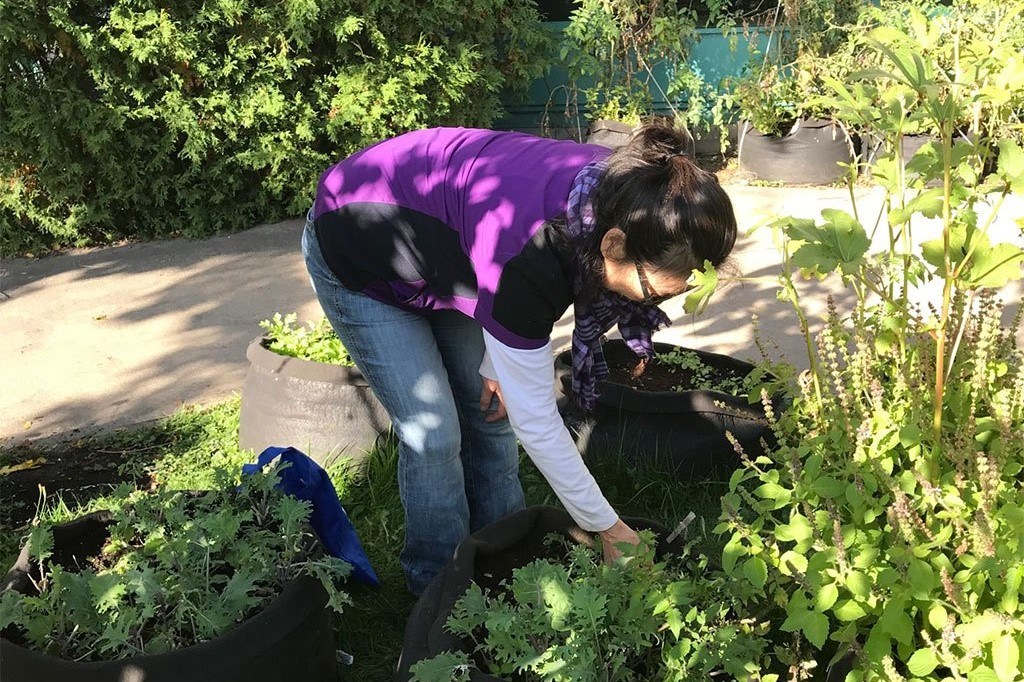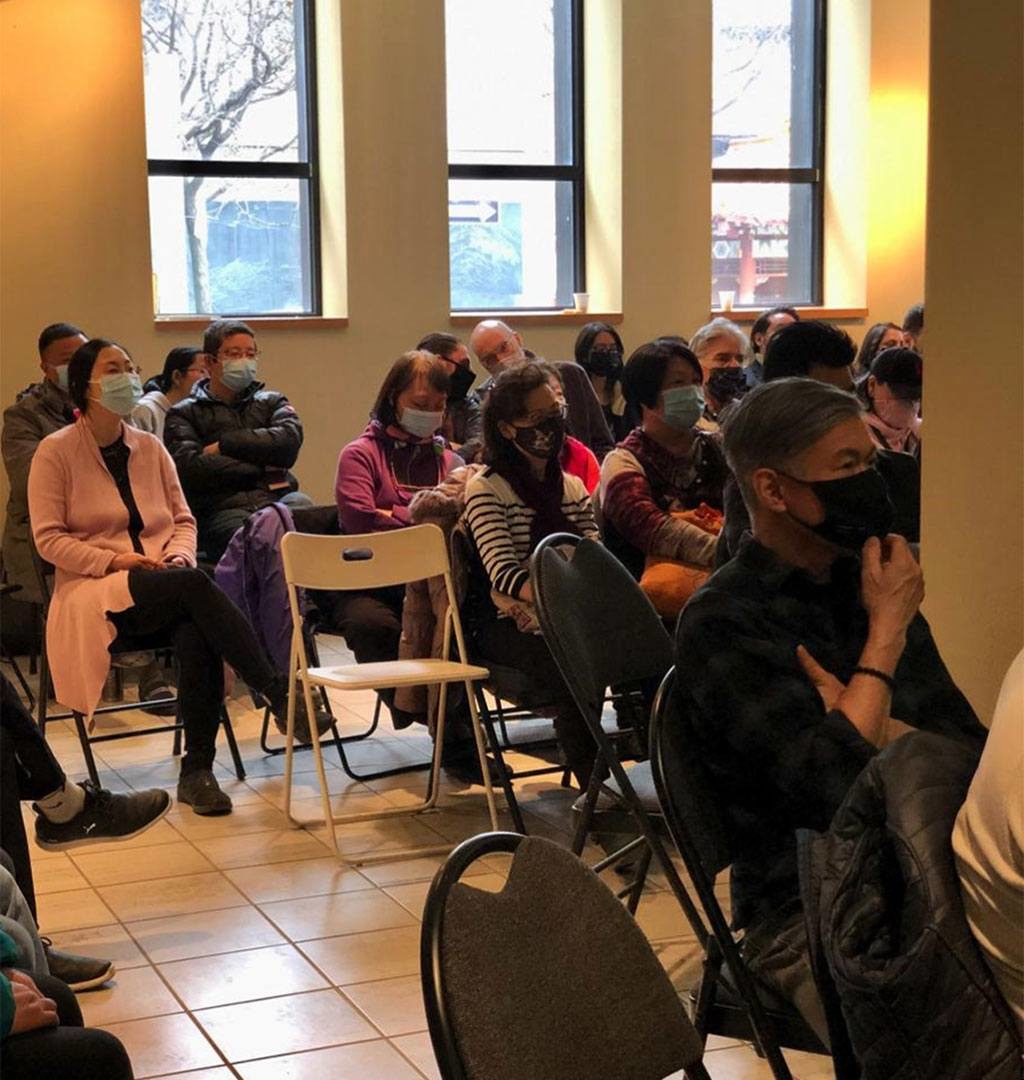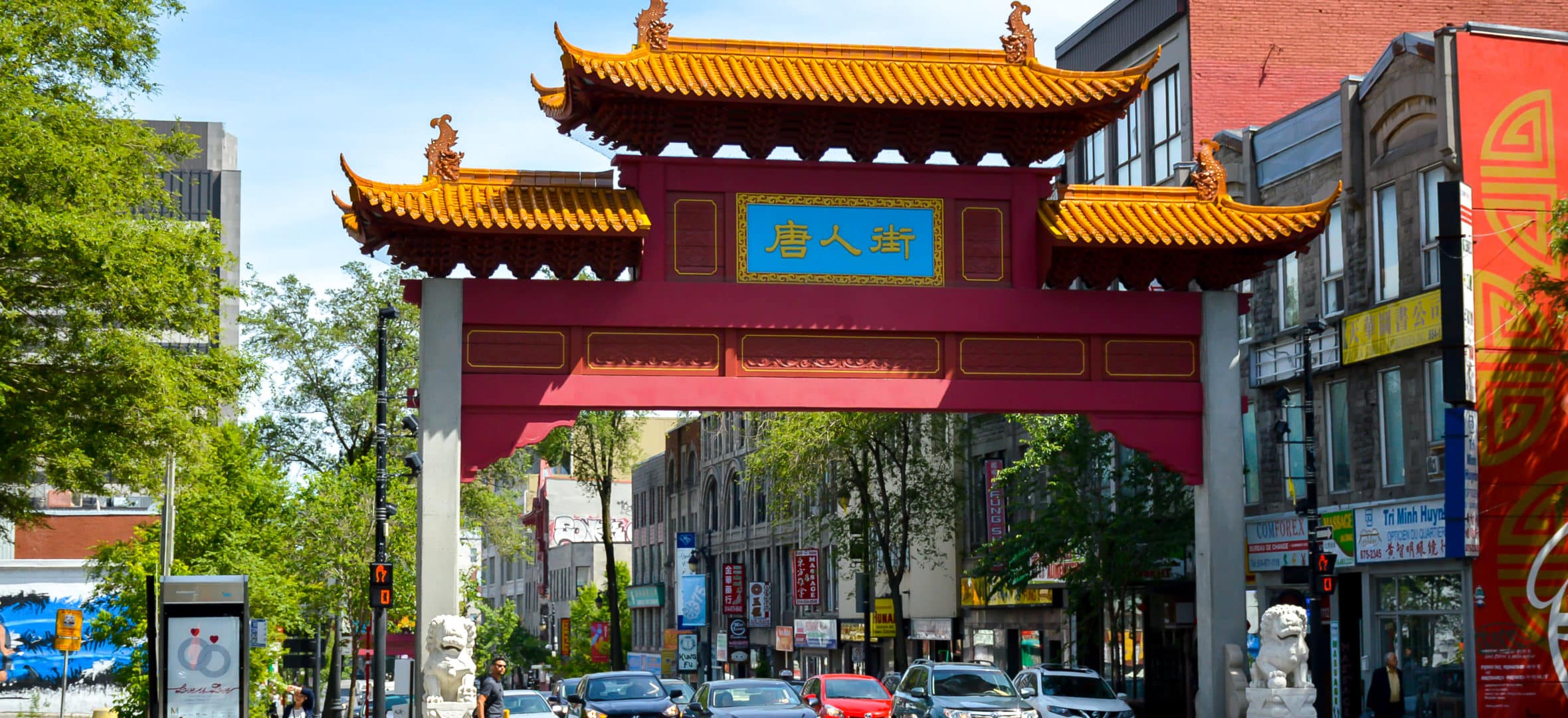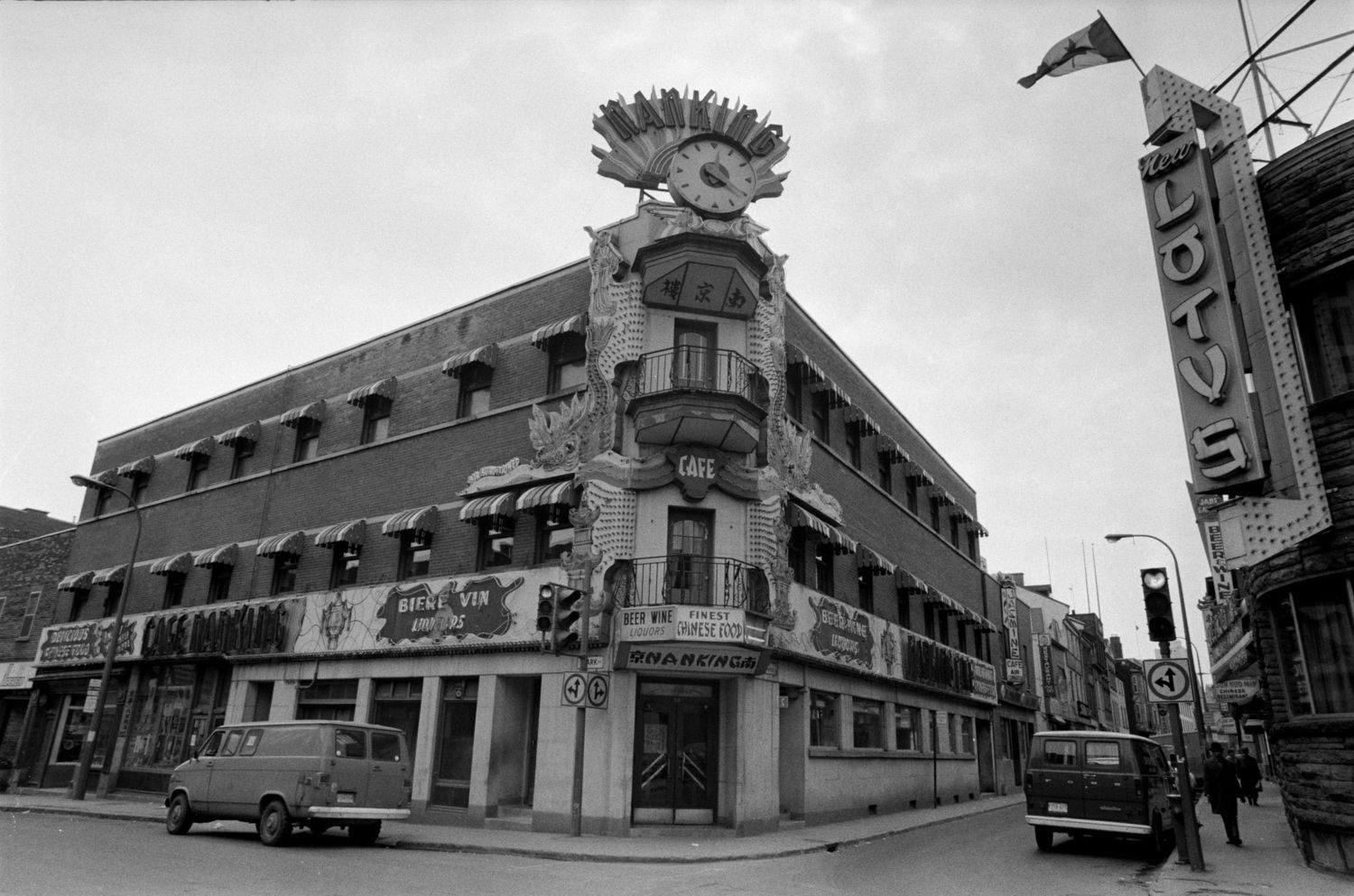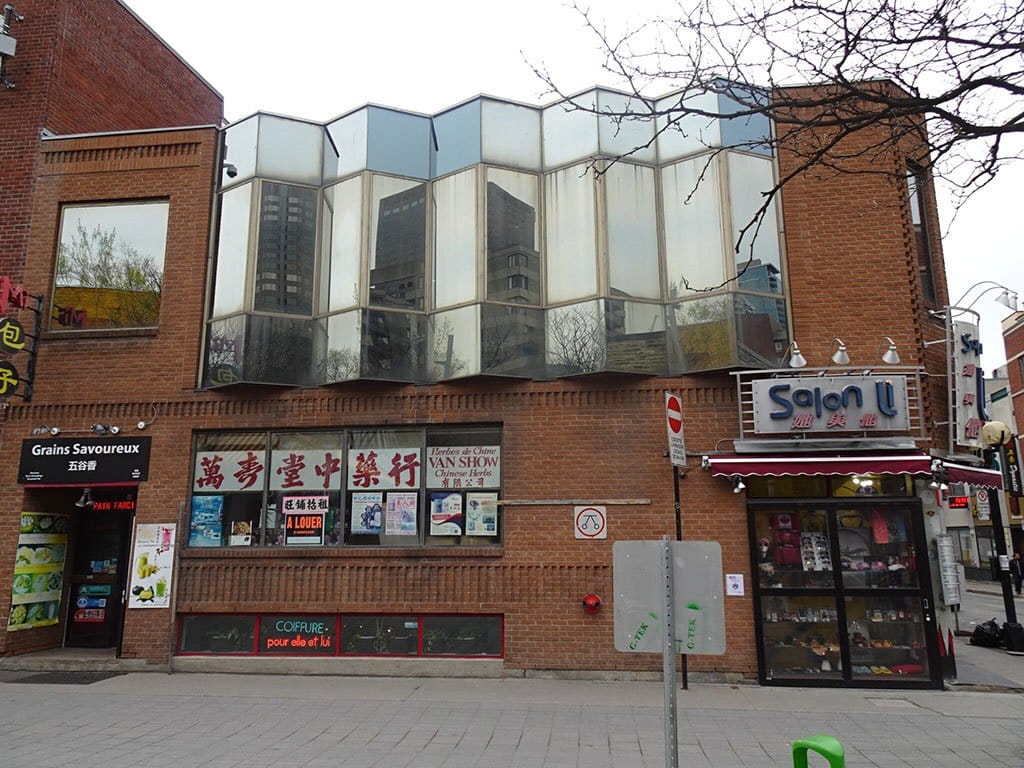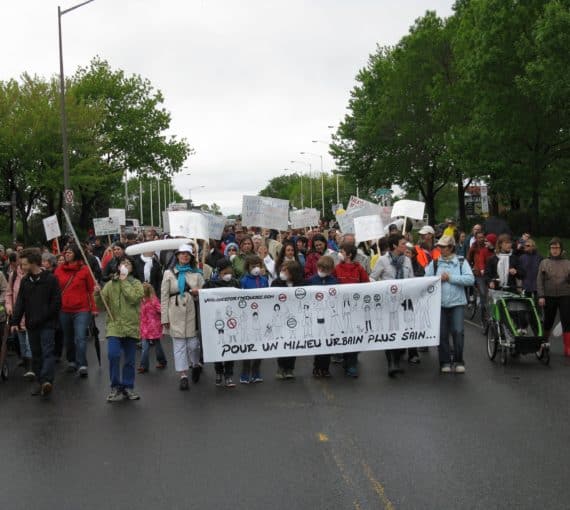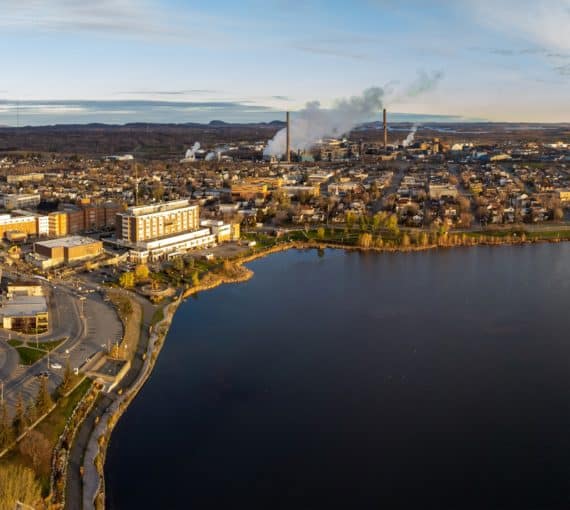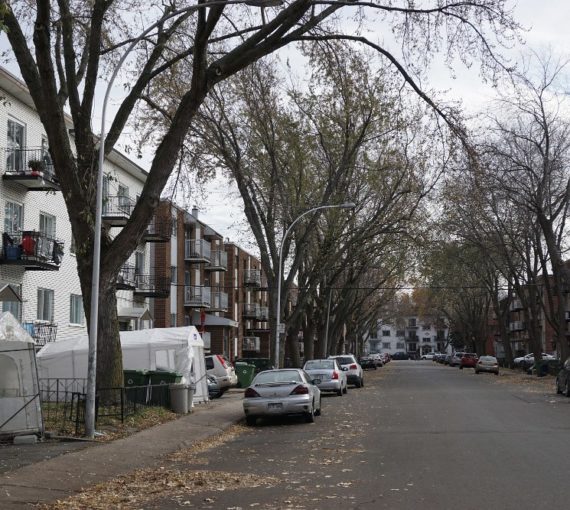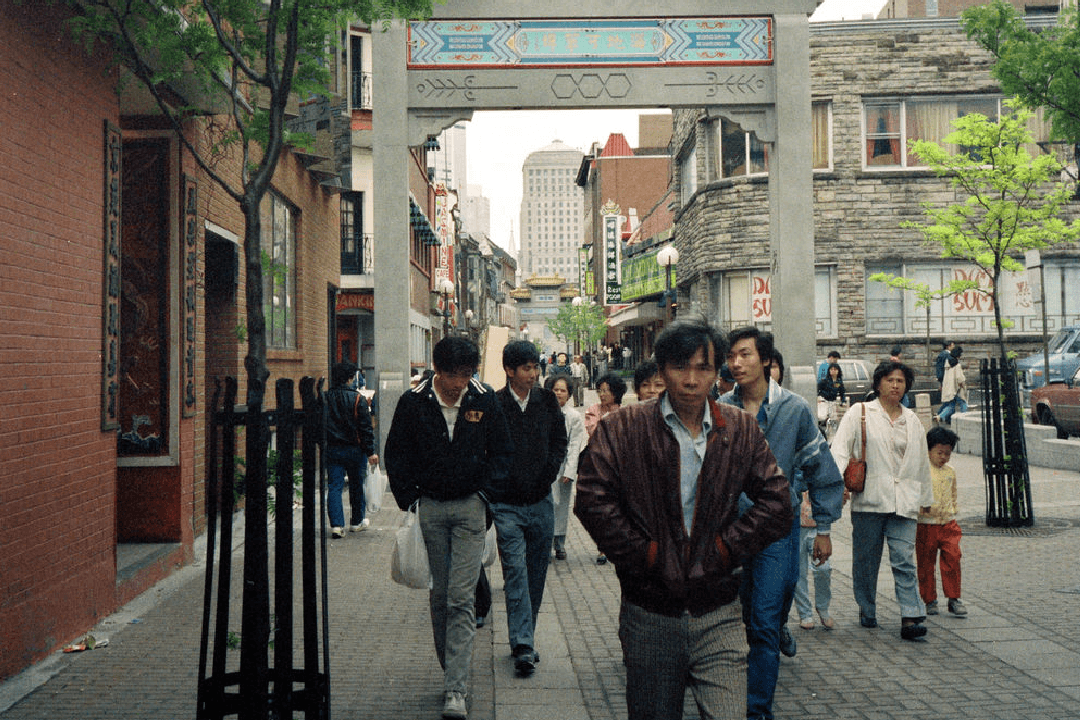
The Chinatown Working Group has been advocating for increased social housing, green spaces, comprehensive services for seniors and disabled people, heritage preservation and economic revitalization for the last three years. (Photo : Chinatown Working Group )
Interview with Chinatown Working Group co-founder and spokesperson May Chiu
Note: This English translation, including quotations, is from a French original.
Citizens committed to protecting Montreal’s Chinatown formed the Chinatown Working Group. They’ve been advocating for increased social housing, green spaces, comprehensive services for seniors and disabled people, heritage preservation and economic revitalization for the last three years. In 2022, these activists achieved provincial heritage designation for two historically significant streets, and protection of the entire neighbourhood by the City of Montreal.
Environmental racism
In spite of its success, the group is constantly confronted by emerging challenges. Lawyer and activist May Chiu explains that Chinatown is experiencing environmental racism, a phenomenon referring to the exposure of predominantly racialized neighbourhoods to a higher pollution index and lack of access to resources such as fresh fruits and vegetables, drinking water and clean air.
Located in downtown Montreal, Chinatown is surrounded on all sides by busy highways and boulevards. The vast majority of residents are elders, many economically vulnerable. The effects of urban heat islands, exacerbated by excessive tourism, construction sites and pollution, threaten their health and safety. Migrant workers’ poor living conditions in crowded units deteriorate in summer. As the climate crisis worsens and air quality decreases, the most underprivileged inhabitants are suffering the most disastrous consequences.
As the climate crisis worsens and air quality decreases, the most underprivileged inhabitants are suffering the most disastrous consequences.
Green Chinatown Montreal founded several community gardens to promote green spaces, used for planting Asian vegetables, and nurture intergenerational community connections. Elders — many once farmers — are encouraged to share their knowledge with younger generations. The “three sisters” (corn, beans, and squash) are also grown and offered to Indigenous neighbours.
Despite popular will, ruthless real estate speculation prevents creation of more green spaces, as vacant lots and buildings — many historically important — are purchased by big developers who increase rents and neglect preservation.
May illustrates the situation by highlighting the presence of more than 50 luxury hotels, all located within a one-kilometre radius of Chinatown; residents were never consulted about them. However, Chinatown is the only borough where linguistically and culturally adapted services for community seniors are accessible.
The effects of urban heat islands, exacerbated by excessive tourism, construction sites and pollution, threaten their health and safety.
City of Montreal consultations: a matter of accessibility
The Chinatown Working Group organized a Public Consultation Office community conversation designed to enact strong public policies to ensure longevity of this neighbourhood plagued by real estate speculation and the climate crisis, but was disappointed by the procedure. May denounced the inaccessibility of public hearings to members of the Chinese community, notably seniors who do not speak English or French.
“We group members had to translate the official documents, make the issues of the hearing generally understandable and mobilize our community,” May said. “People want to participate in these hearings, but the Public Consultation Office declined to hire interpreters. An almost 90-year-old senior crossed a few blocks with her walker to come to a Q&A period held by the City of Montreal. However, since there was no interpretation, she sat in silence for two hours not understanding what was said.”
Post-2020: obstacles and economic revitalization
Montreal’s Chinatown has suffered devastating impacts since the beginning of the COVID-19 pandemic. Afflicted by anti-Asian hate crimes, interrupted tourism and store closures, the neighbourhood residents’ economic, physical and psychological security was heavily compromised.
According to Montreal police, attacks against Asian people and businesses between March and December 2020 increased by 500 per cent compared to 2019. “Unfortunately, the police are not qualified to solve these incidents, due to cultural and linguistic barriers and the corrective — as opposed to preventive — nature of their role,” May said. Many racist incidents aren’t reported to police, so the real hate crime rate is likely higher.
Looking ahead, the Chinatown Working Group aims to promote a local, circular and sustainable model of economic revitalization. Although the City of Montreal offered a help package to small business owners, Chinatown’s residents aspire to an inclusive vision that prioritizes arts and culture instead of relying on foreign tourism and real estate development.
Founded by immigrants who formed groups according to their province of origin, they are deeply rooted in values of mutual aid and solidarity.
May believes “a resilient economy is based on the soul and presence of the local population. A living community is crucial to the just and green transition of a neighbourhood whose residents contribute to its heritage — both material and immaterial.”
May recalls that survival of Chinatowns throughout Canada over the years is partly due to the presence of family associations. Founded by immigrants who formed groups according to their province of origin, they are deeply rooted in values of mutual aid and solidarity. At a time when banks refused to grant loans to non-European immigrants, these associations served as financial cooperatives and played important philanthropic and educational roles. Each member paid a weekly contribution and the money was then lent to those in need.
These associations still exist today and have grown in number and magnitude. Symbols of local solidarity, they are a heartwarming reminder for new immigrants that they are never alone and that they can count on their community to support them. May sees this as an important example for building climate resilience.
Toward Chinatown’s future
May envisions the Chinatown Working Group’s future goals with hope and enthusiasm. She’s currently working on a collaborative project with the Kanien’kehá:ka community of Kanehsatà:ke, which aims to build long-lasting inter-community connections between youth of both groups, and on the centennial commemoration of the historical exclusion tax, which targeted Chinese people wanting to come to Canada.
It’s also busy building three housing cooperatives to provide shelter for young families, seniors and migrant workers. May hopes this initiative will contribute to mobilizing the younger generation to advocate for a sustainable future and climate justice in Chinatown.
